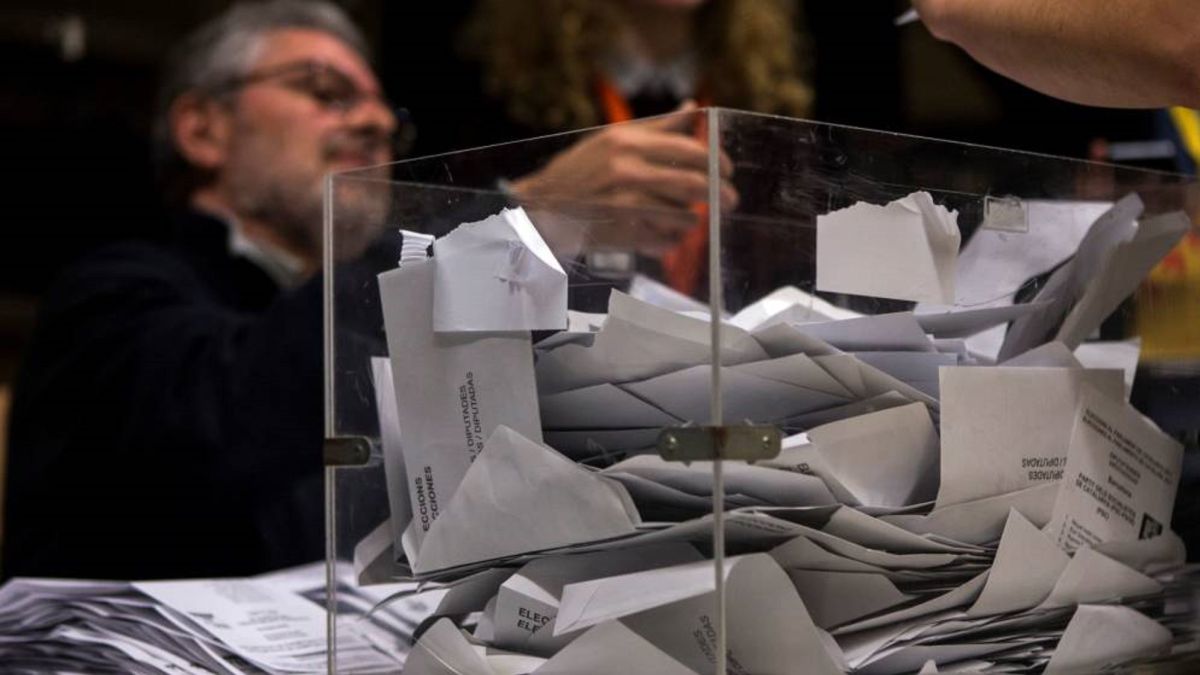On Sunday Feb 14, 82,251 Catalans must present themselves at 8:00 a.m. at the polling stations to be part of the more than 8,000 polling stations from which the regional elections will be controlled.
However, some 55,000 substitutes will be able to go home if all incumbents attend. These polling stations will be made up of a president and two members elected by public lottery. That is, there must be three regular members for each polling station and two alternates for each position.
The Organic Law of the General Electoral Regime (LOREG) establishes that you can participate in the polling station Any Catalan of legal age and under 70 years of age who can read and write, although from 65 years of age they may express their resignation within a period of seven days.
In addition, it must have at least the Baccalaureate degree of Vocational training Second grade, or in a subsidiary way, the equivalent of Graduate School.
Thus, each member of the table will have a specific functions, collected in the Instruction Manual distributed by the Generalitat. Also the compensation received varies.
All three members will receive 65 euros for their work, but the presidents will have an increase of 10 euros for delivering the electoral documentation to the court of first instance or peace. In municipalities with more than 500 tables, the increase is 25 euros.
President
At the time of the elections the president will be the person of higher authority within the polling station and may request help from the security forces and bodies if required during any time of the day.
The first thing the chairman of the table must do, together with the members, is check “that they have all the material elements necessary for the proper functioning of the electoral process”.
Once verified, the president announce the start of voting. During voting, your role will be to ask for voter identification check envelopes at the moment when citizens vote. You also have to announce when voting time is up.
When the vote is over you must Introduce inside the urn the envelopes containing the ballot papers sent by mail, just like him vote of the members of the table electoral, to proceed to the scrutiny.
During the process of scrutiny, President will extract the ballots from the polls, will read the vote, showing it to the other members, and announce the result aloud of the elections.
After counting, deliver the required envelopes to the Court of First Instance or Peace of the constituency in which the table is located. Lastly, he will sign the minutes of the session.
Vowels
For their part, the members must also ensure that all the material is present before the electoral process begins. While the elections are taking place, your work will be verify the identity of voters (with ID, Passport or driver’s license) and and are on the census list, in addition to write down on a list who is voting.
In the scrutiny process, the members will have to confirm that the information that the president shows regarding the vote is correct and that number of envelopes what’s in the polls corresponds to the one listed in the list numbered that they themselves have drawn up and signed.
At the conclusion of the count, one of the members must stay at the electoral college until an employee of the postal service shows up there to receive one of the envelopes with the results. In addition, like the president, both members must sign the minutes of the session.

